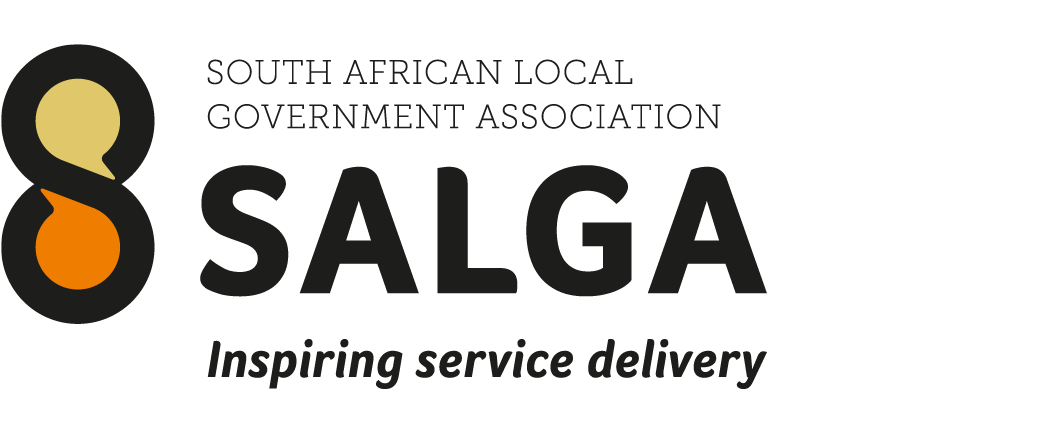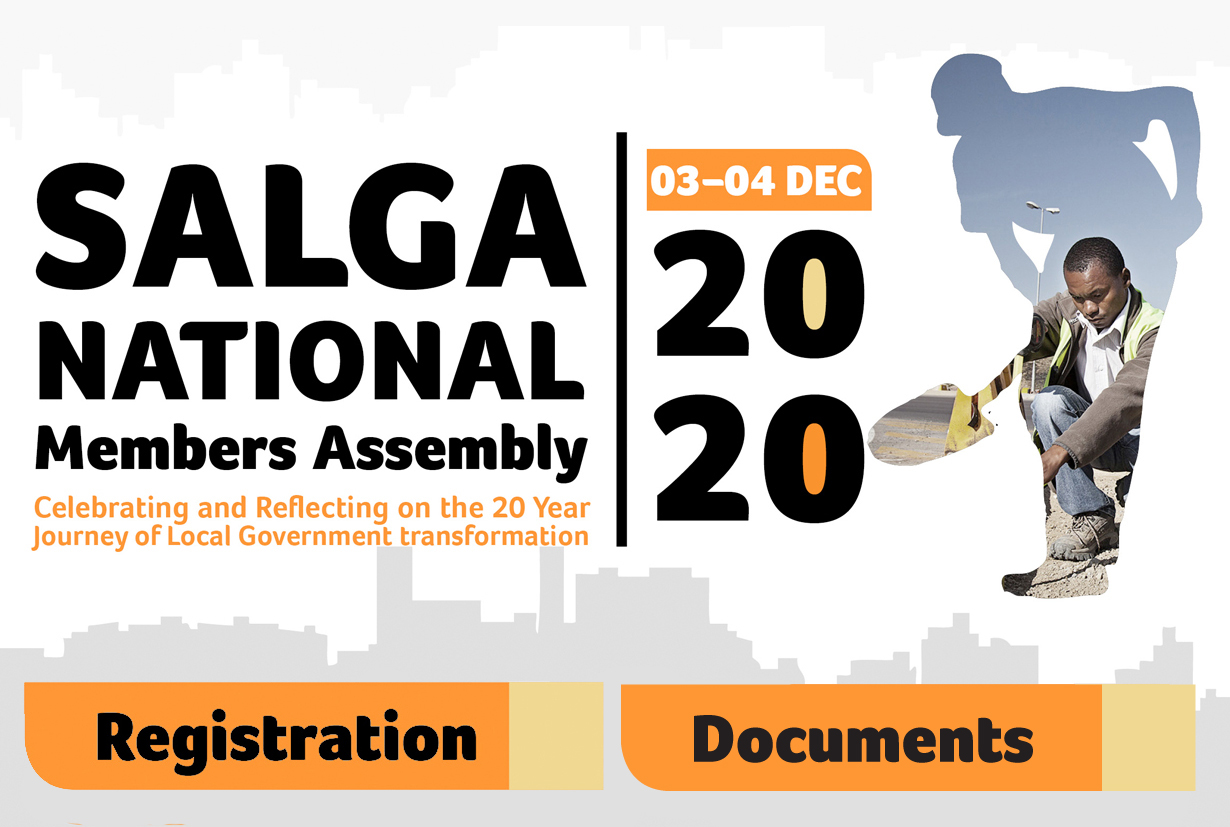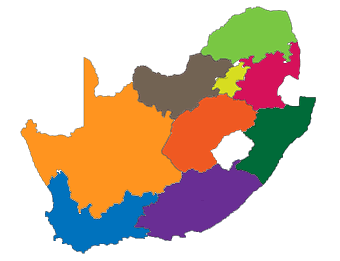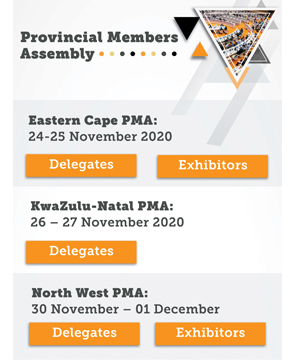
 |
 |
 |
 |
||||
 |
 |
 |
 |
 |
SALGA NEWS |
Upcoming Events |
 |

|
|

|
|

|
|
Annual Report |
 |
Quick Links |
 |
Municipalities |
 |

|
|
Social Media |
 |
Follow Us on Social Media
|
|
Advancing Gender Equality in Local Government | South African Local Government Association Women’s Commission (SWC) chairperson Cllr Flora Maboa-Boltman
Posted: 08 March 2021
 |
With the year 2021 marking 65 years since the 9 August 1956 women’s march on the apartheid government’s discriminatory policies, and 27 years of democracy in South Africa, gender inequality, particularly with regard to local government, persists.
These are the poignant reflections of Cllr Flora Maboa-Boltman, chairperson of the South African Local Government Association Women’s Commission (SWC), who in advance of International Women’s Day on the 8th of March, thought it relevant and timely to shine a light on the hindrances to women’s representation and participation in local government.
She said despite the advances made in driving new opportunities for women to participate in the sector, the goal of ensuring that women take part in local governance decision-making on an equal footing to men is still a long way off.
“This is something that I have experienced. I was a council speaker of a district municipality, I used to go into meetings and you’d have to contend with patriarchal attitudes. Feelings of ‘what can a woman tell us about male-dominated occupations’,” said Cllr Maboa-Boltman.
For the South African local government fraternity, March 8, International Women’s Day, is an opportunity to reflect on the progress that has been made towards the advancement of gender equality in local government and a challenge to craft new solutions to overcome the remaining barriers facing women in the sector.
Research from The United Nations Entity for Gender Equality and the Empowerment of Women, shows that in a study sample of 133 countries, women constituted 2.18 million (36 per cent) of elected members in local deliberative bodies. Only two countries have reached 50 per cent, and an additional 18 countries have more than 40 per cent women in local government
Despite the policies and programmes designed to accelerate women’s representation and participation in local government, there is a considerable distance to achieving gender parity.
Gender equality and local government elections
A study by Gender Links titled, “Gender in the 2016 South African Local Government Elections”, found that following the 3 August 2016 municipal elections, women’s representation in local government peaked at 41%, up from 38% in the 2011 municipal elections.
An examination of the outcomes of South Africa’s first three municipal elections showed an overall increase in the representation and participation of women in local government, from 19% in 1995 to 40% in 2006.
South Africa's Beijing +20 report: progress made on the implementation of the Beijing Declaration and Platform for Action 2014-2019, reported that in 2016, 276 of South Africa’s 278 municipalities had a sitting mayor and of these, 107 (or 39%) were female.
In consideration of this, Cllr Maboa-Boltman pointed out that South Africa is a signatory of the 2008 SADC Protocol on Gender and Development, which commits member states to put in place measures to bring about 50% representation for women in decision-making positions by 2015.
This is in addition to South Africa’s commitment to implement goal 5.5 of the Sustainable Development Goals, which aims to ensure women’s full and effective participation and equal opportunities for leadership at all levels of decision-making in political, economic and public life.
Cllr Maboa-Boltman said that notwithstanding the gradual increase that has been made against these and other targets, much more still needs to be done in ensuring that women play a far bigger role in local government.
“There should be legislation (50/50 quota) but it is not legislated, so it won’t be respected. Even if you look outside of local government, there are more male Premiers than females.”
Cllr Maboa-Boltman also lamented the low proportion of women in the upper echelons of municipal administration, despite there being more women than men in South Africa.
Challenges facing women in local government
Cllr Maboa-Boltman spoke about the social, cultural, structural and institutional barriers that stymie the representation of women in local governance.
She noted that patriarchal attitudes, often practiced in the home, found their way to organisational settings, not just in local government, but in all other areas of public and economic life.
Cllr Maboa-Boltman added that such cultural and working practices remained significant barriers to increasing women’s participation in local government.
“The main issue is patriarchy; beliefs that women must be limited to doing certain things.”
Changing the face of local government
In addition to the need for legislated quotas to increase women’s representation in local governance and institutional support mechanisms to ensure the progress of female representatives after their election, Cllr Maboe-Boltman holds the view that political parties have a crucial role to play in ensuring fundamental change in local government.
“Political parties must come on board. We are calling for all political parties to encourage the election of women in wards and councils. Women are capable.”
Joining the national effort to create a more inclusive and equitable South Africa, the SALGA Women’s Commission, celebrates this year’s International Women’s Day under the theme, “Women in leadership: Achieving an equal future in a COVID-19 World.”
The commission in partnership with municipalities and the Joe Slovo Foundation will also be convening a virtual dialogue on the implementation of the National Strategic Plan (NSP) on Gender Based Violence and Femicide (GBV+F) on Tuesday, 9 March 2021 from 10:00 am-13:00 pm.
The SALGA Women’s Commission was established in 2010 with the purpose of ensuring that gender mainstreaming and women’s issues, in particular, receive adequate attention at local government level in policy and in practice.

